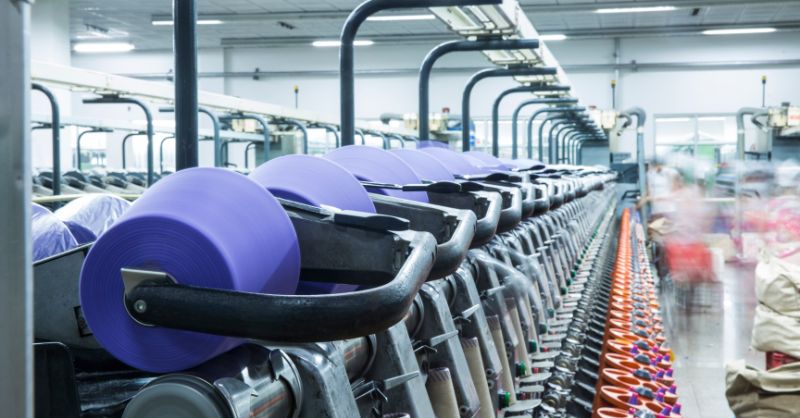Exploring the World of Textile Machinery Suppliers: Unveiling Market Trends and Industry Insights

Textile manufacturing is a vital industry that relies heavily on advanced machinery to meet the growing demands for high-quality fabrics. In this dynamic market, textile machinery suppliers play a crucial role in providing manufacturers with the cutting-edge equipment needed to streamline production processes and enhance productivity. From manufacturers to exporters and importers, these suppliers contribute significantly to the textile industry's growth and evolution. In this article, we delve into the world of textile machinery suppliers, uncovering market trends, industry insights, and the importance of sourcing the right equipment for sustainable growth.
The textile machinery manufacturing sector encompasses a wide range of products designed to facilitate various stages of textile production. Textile machinery suppliers specialize in manufacturing and supplying equipment like spinning machines, weaving looms, knitting machines, dyeing machines, printing machines, and finishing machines, among others. Their products cater to the needs of textile manufacturers worldwide, enabling them to achieve efficient production processes and maintain a competitive edge in the market.
One of the key aspects to consider when discussing textile machinery suppliers is the geographical distribution of manufacturing hubs. Countries like China, India, Germany, Italy, and Japan
The emergence of advanced technologies has transformed the textile machinery sector, leading to the development of innovative and highly efficient machines. Automation, robotics, and artificial intelligence have revolutionized textile manufacturing, enabling faster production, improved quality control, and reduced operational costs. Textile machinery suppliers are at the forefront of adopting these technological advancements, incorporating them into their products to offer cutting-edge solutions to manufacturers.
In recent years, sustainability has become a paramount concern in the textile industry. Textile machinery suppliers are actively addressing this concern by developing eco-friendly machinery that reduces energy consumption, minimizes waste, and optimizes resource utilization. Manufacturers are increasingly seeking machinery that aligns with sustainable production practices, and suppliers are responding by providing energy-efficient equipment and incorporating renewable materials wherever possible.
The textile machinery export-import market plays a crucial role in facilitating global trade in textile machinery. Exporters bridge the gap between manufacturers and international buyers, enabling seamless transactions and facilitating the growth of the textile industry on a global scale. Developing countries with a strong textile manufacturing base often rely on imported machinery to enhance their production capabilities. Textile machinery importers play a pivotal role in meeting this demand, sourcing and supplying machinery from leading manufacturers across the world.
In the competitive landscape of textile machinery suppliers, building and maintaining strong relationships with customers is essential. Suppliers strive to provide comprehensive pre-sales and after-sales support, including installation, training, maintenance, and timely spare parts supply. By offering efficient customer service, suppliers ensure that textile manufacturers can maximize the productivity of their machinery and minimize downtime.
As the textile industry continues to evolve, textile machinery suppliers are adapting their strategies to meet changing market demands. They are focusing on developing innovative products, embracing sustainable practices, and expanding their reach through global collaborations and partnerships. Moreover, suppliers are investing in research and development to create machinery that addresses emerging industry trends, such as the demand for smart textiles and digital printing technologies.
Textile machinery suppliers form a critical link in the textile manufacturing supply chain, providing manufacturers with the essential machinery required for efficient production processes. With their expertise, innovation, and commitment to sustainability, these suppliers play a pivotal role in driving the growth and development of the textile industry. As the industry embraces technological advancements and sustainable practices, the collaboration between manufacturers and suppliers will continue to shape the future of textile manufacturing, ensuring a vibrant and sustainable industry for years to come.
Previous Story
- Indian Textile Industry Flourishes as Manufacturers Explore Global...
- What makes a sustainable rug? Try natural fibers...
- Z&Z Fabrics introduces Sorona fabric line
- Pakistan’s textile exports catching up with neighboring apparel...
- An overview on global fiber and yarn market
- Textile Chemicals Market Report, Industry Analysis, Growth, Size...
- Textile millers want cut in VAT on all...
- New dual action textile cooling technology